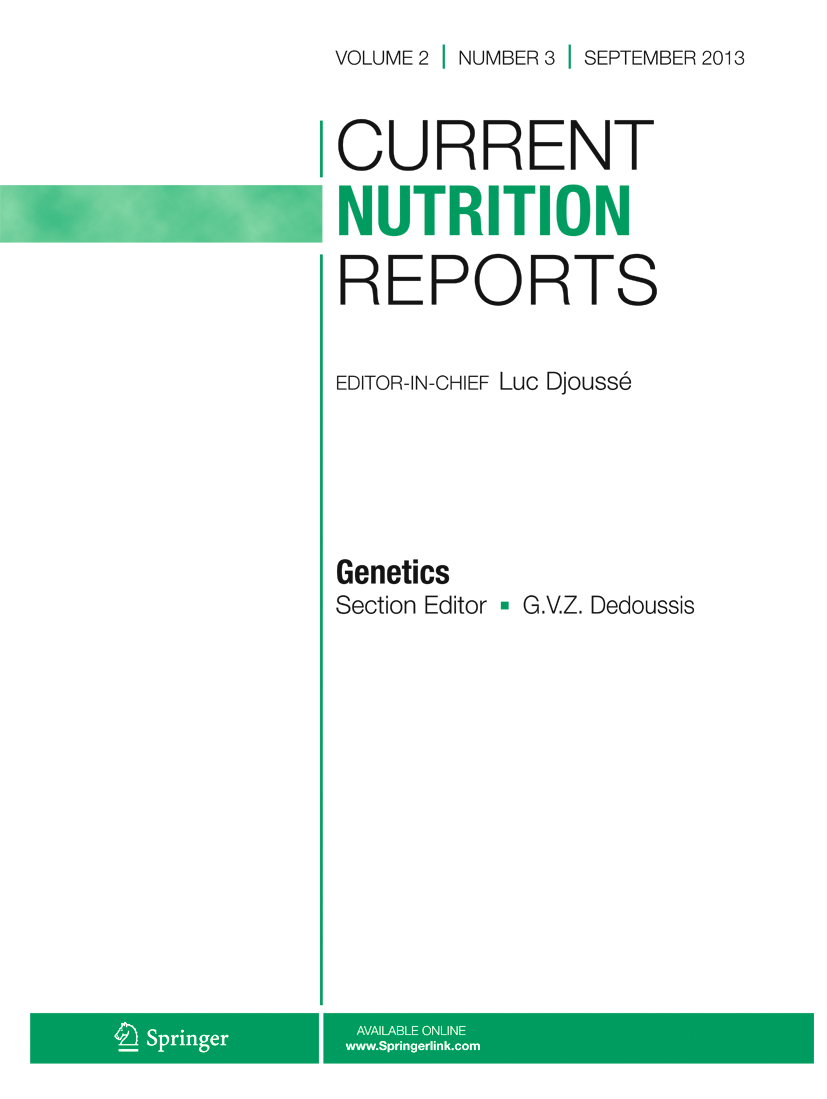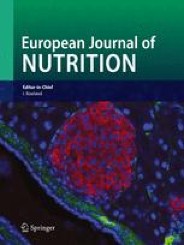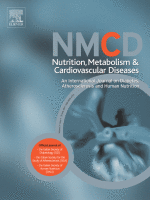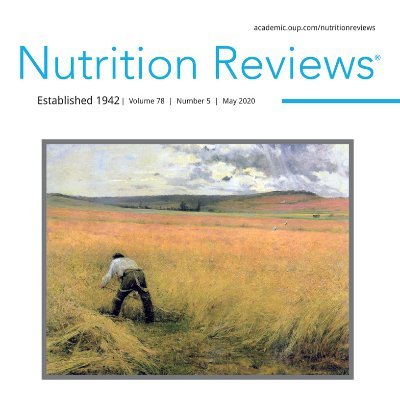Oats
How to submit an article:
- Registered users can submit any published journal article that has a unique DOI (Digital Object Identifier) name or link to Research Hub.
- For example, you can paste the full DOI link:
https://doi.org/10.1109/5.771073or just the DOI name:10.1109/5.771073into the field above and click submit. - The person who is first to submit a valid article to Research Hub will forever be credited for it, and every article submission earns you +6 Research Points.
Related Topics
Published research studies are articles that present the findings of original research that has undergone a peer-review process and has been made publicly available in scholarly journals, books or other media.

Effect of Oat (Avena sativa L.) Consumption on Lipid Profile With Focus on Triglycerides and High-density Lipoprotein Cholesterol (HDL-C): An Updated Systematic Review
2023 Jul Current Problems in Cardiology Amerizadeh A, Ghaheh HS, Vaseghi G, Farajzadegan Z, Asgary S
Systematic Review Triglyceride Cholesterol HDL-C OatsOat consumption can significantly improve lipid profiles, particularly reducing total cholesterol and LDL cholesterol, with potential positive effects on triglycerides and HDL cholesterol under certain conditions.

Impact of Oats on Appetite Hormones and Body Weight Management: A Review
2023 Feb 15 Current Nutrition Reports Shehzad A, Rabail R, Munir S, Jan H, Fernández-Lázaro D, Aadil RM
Review Article Obesity Appetite OatsOats, in various edible forms, can regulate appetite hormones, aid weight management, strengthen the immune system, and contribute to gut health, making them effective for obesity management.

Effect of oat supplementation interventions on cardiovascular disease risk markers: a systematic review and meta-analysis of randomized controlled trials
2022 Jan 03 European Journal of Nutrition Llanaj E, Dejanovic GM, Valido E, Bano A, Gamba M, Kastrati L, et al.
Meta-Analysis Systematic Review Cholesterol Oats Cardiovascular DiseaseOat supplementation interventions can improve cardiovascular health markers among adults, regardless of their diet or metabolic conditions.

The Prebiotic Effects of Oats on Blood Lipids, Gut Microbiota, and Short-Chain Fatty Acids in Mildly Hypercholesterolemic Subjects Compared With Rice: A Randomized, Controlled Trial
2021 Dec 09 Frontiers in Immunology Xu D, Feng M, Chu YF, Wang S, Shete V, Tuohy KM, et al.
Experimental Study Randomised Controlled Trial Oats Cholesterol Gut MicrobiotaConsuming oats significantly lessens total and LDL cholesterol levels and mediates a prebiotic effect on the gut microbiome, contributing to its cholesterol-lowering ability.

The effects of foods on LDL cholesterol levels: A systematic review of the accumulated evidence from systematic reviews and meta-analyses of randomized controlled trials
2021 May Nutrition, Metabolism and Cardiovascular Diseases Schoeneck M, Iggman D
Systematic Review Turmeric Walnut Avocado Tumeric Almond Green Tea Tomato FlaxseedConsumption of certain foods like rapeseed/canola oil, avocados, and turmeric can lead to moderate to large reductions in LDL cholesterol levels.
Research insights are moderated by the Research Hub team and offer an at-a-glance overview of interesting research findings.

2023 Current Problems in Cardiology
Oat consumption can significantly improve lipid profiles, particularly reducing total cholesterol and LDL cholesterol, with potential positive effects on triglycerides and HDL cholesterol under certain conditions.
Systematic Review Cholesterol HDL-C Triglyceride
Effect of Oat (Avena sativa L.) Consumption on Lipid Profile With Focus on Triglycerides and High-density Lipoprotein Cholesterol (HDL-C): An Updated Systematic Review
Amerizadeh A, Ghaheh HS, Vaseghi G, Farajzadegan Z, Asgary S

2023 Current Nutrition Reports
Oats, in various edible forms, can regulate appetite hormones, aid weight management, strengthen the immune system, and contribute to gut health, making them effective for obesity management.
Review Article Appetite Obesity
Impact of Oats on Appetite Hormones and Body Weight Management: A Review
Shehzad A, Rabail R, Munir S, Jan H, Fernández-Lázaro D, Aadil RM

2022 European Journal of Nutrition
Oat supplementation interventions can improve cardiovascular health markers among adults, regardless of their diet or metabolic conditions.
Meta-Analysis Cardiovascular Disease Cholesterol
Effect of oat supplementation interventions on cardiovascular disease risk markers: a systematic review and meta-analysis of randomized controlled trials
Llanaj E, Dejanovic GM, Valido E, Bano A, Gamba M, Kastrati L, et al.

2021 Frontiers in Immunology
Consuming oats significantly lessens total and LDL cholesterol levels and mediates a prebiotic effect on the gut microbiome, contributing to its cholesterol-lowering ability.
Experimental Study Cholesterol Gut Microbiota
The Prebiotic Effects of Oats on Blood Lipids, Gut Microbiota, and Short-Chain Fatty Acids in Mildly Hypercholesterolemic Subjects Compared With Rice: A Randomized, Controlled Trial
Xu D, Feng M, Chu YF, Wang S, Shete V, Tuohy KM, et al.

2021 Nutrition, Metabolism and Cardiovascular Diseases
Consumption of certain foods like rapeseed/canola oil, avocados, and turmeric can lead to moderate to large reductions in LDL cholesterol levels.
Systematic Review Almond Avocado Flaxseed Green Tea Tomato
The effects of foods on LDL cholesterol levels: A systematic review of the accumulated evidence from systematic reviews and meta-analyses of randomized controlled trials
Schoeneck M, Iggman D
Review Articles
Review articles summarise and critically evaluate the current state of research on a specific topic or field by synthesising multiple primary research studies.

Effect of Oat (Avena sativa L.) Consumption on Lipid Profile With Focus on Triglycerides and High-density Lipoprotein Cholesterol (HDL-C): An Updated Systematic Review
2023 Jul Current Problems in Cardiology Amerizadeh A, Ghaheh HS, Vaseghi G, Farajzadegan Z, Asgary S
Systematic Review Triglyceride Cholesterol HDL-C OatsOat consumption can significantly improve lipid profiles, particularly reducing total cholesterol and LDL cholesterol, with potential positive effects on triglycerides and HDL cholesterol under certain conditions.

Impact of Oats on Appetite Hormones and Body Weight Management: A Review
2023 Feb 15 Current Nutrition Reports Shehzad A, Rabail R, Munir S, Jan H, Fernández-Lázaro D, Aadil RM
Review Article Obesity Appetite OatsOats, in various edible forms, can regulate appetite hormones, aid weight management, strengthen the immune system, and contribute to gut health, making them effective for obesity management.

Effect of oat supplementation interventions on cardiovascular disease risk markers: a systematic review and meta-analysis of randomized controlled trials
2022 Jan 03 European Journal of Nutrition Llanaj E, Dejanovic GM, Valido E, Bano A, Gamba M, Kastrati L, et al.
Meta-Analysis Systematic Review Cholesterol Oats Cardiovascular DiseaseOat supplementation interventions can improve cardiovascular health markers among adults, regardless of their diet or metabolic conditions.

The effects of foods on LDL cholesterol levels: A systematic review of the accumulated evidence from systematic reviews and meta-analyses of randomized controlled trials
2021 May Nutrition, Metabolism and Cardiovascular Diseases Schoeneck M, Iggman D
Systematic Review Turmeric Walnut Avocado Tumeric Almond Green Tea Tomato FlaxseedConsumption of certain foods like rapeseed/canola oil, avocados, and turmeric can lead to moderate to large reductions in LDL cholesterol levels.

The Cholesterol-Lowering Effect of Oats and Oat Beta Glucan: Modes of Action and Potential Role of Bile Acids and the Microbiome
2019 Nov 27 Frontiers in Nutrition Joyce SA, Kamil A, Fleige L, Gahan CGM
Theoretical Article Review Article Cardiovascular Disease Beta Glucan Gut Microbiota OatsConsumption of oat β-glucan may lower cholesterol and risk of cardiovascular disease by altering gut bacteria and their effects on bile acid and cholesterol metabolism.
Clinical Trials
Clinical trials are research studies that involve people and are conducted to evaluate the safety and efficacy of new treatments or interventions, such as drugs, medical devices, or behavioural therapies.

The Prebiotic Effects of Oats on Blood Lipids, Gut Microbiota, and Short-Chain Fatty Acids in Mildly Hypercholesterolemic Subjects Compared With Rice: A Randomized, Controlled Trial
2021 Dec 09 Frontiers in Immunology Xu D, Feng M, Chu YF, Wang S, Shete V, Tuohy KM, et al.
Experimental Study Randomised Controlled Trial Oats Cholesterol Gut MicrobiotaConsuming oats significantly lessens total and LDL cholesterol levels and mediates a prebiotic effect on the gut microbiome, contributing to its cholesterol-lowering ability.
The effect of oat bran consumption on gestational diabetes: a randomized controlled clinical trial
2021 Apr 13 BMC Endocrine Disorders Barati Z, Iravani M, Karandish M, Haghighizadeh MH, Masihi S
Randomised Controlled Trial Gestational Diabetes OatsAdding oat bran to the diet of pregnant women with gestational diabetes can help significantly reduce their fasting and postprandial blood glucose levels.

Effect of dietary supplementation with oat β-glucan for 3 months in subjects with type 2 diabetes: A randomized, double-blind, controlled clinical trial
2021 Feb Journal of Functional Foods Pino JL, Mujica V, Arredondo M
Randomised Controlled Trial Gut Microbiota Satiety HbA1C Type 2 Diabetes Blood Sugar OatsEnriching a regular diet with oat β-glucan can improve glycemic control, augment feelings of fullness, and positively modulate gut microbiota in individuals with type-2 diabetes.

A Randomized Placebo-Controlled Clinical Trial to Evaluate the Medium-Term Effects of Oat Fibers on Human Health: The Beta-Glucan Effects on Lipid Profile, Glycemia and inTestinal Health (BELT) Study
2020 Mar 03 Nutrients Cicero AFG, Fogacci F, Veronesi M, Strocchi E, Grandi E, Rizzoli E, et al.
Randomised Controlled Trial OatsDaily intake of 3 grams of oat beta-glucans significantly reduces LDL-Cholesterol, Total Cholesterol, and non-HDL-Cholesterol levels without impacting intestinal well-being or glucose levels.
Study Protocols
Published study protocols are detailed plans that outline the objectives, methodology, statistical analyses, and organisation of a research study that have been made publicly available for others to review and use as a reference.
Presentation Slides

Systematic Review
Oat consumption can significantly improve lipid profiles, particularly reducing total cholesterol and LDL cholesterol, with potential positive effects on triglycerides and HDL cholesterol under certain conditions.
Amerizadeh A, Ghaheh HS, Vaseghi G, Farajzadegan Z, Asgary S

Review Article
Oats, in various edible forms, can regulate appetite hormones, aid weight management, strengthen the immune system, and contribute to gut health, making them effective for obesity management.
Shehzad A, Rabail R, Munir S, Jan H, Fernández-Lázaro D, Aadil RM

Meta-Analysis
Oat supplementation interventions can improve cardiovascular health markers among adults, regardless of their diet or metabolic conditions.
Llanaj E, Dejanovic GM, Valido E, Bano A, Gamba M, Kastrati L, Minder B, Stojic S, Voortman T, Marques-Vidal P, Stoyanov J, Metzger B, Glisic M, Kern H, Muka T

Experimental Study
Consuming oats significantly lessens total and LDL cholesterol levels and mediates a prebiotic effect on the gut microbiome, contributing to its cholesterol-lowering ability.
Xu D, Feng M, Chu YF, Wang S, Shete V, Tuohy KM, Liu F, Zhou X, Kamil A, Pan D, Liu H, Yang X, Yang C, Zhu B, Lv N, Xiong Q, Wang X, Sun J, Sun G, Yang Y

Systematic Review
Consumption of certain foods like rapeseed/canola oil, avocados, and turmeric can lead to moderate to large reductions in LDL cholesterol levels.
Schoeneck M, Iggman D

Randomised Controlled Trial
Adding oat bran to the diet of pregnant women with gestational diabetes can help significantly reduce their fasting and postprandial blood glucose levels.
Barati Z, Iravani M, Karandish M, Haghighizadeh MH, Masihi S

Randomised Controlled Trial
Enriching a regular diet with oat β-glucan can improve glycemic control, augment feelings of fullness, and positively modulate gut microbiota in individuals with type-2 diabetes.
Pino JL, Mujica V, Arredondo M

Randomised Controlled Trial
Daily intake of 3 grams of oat beta-glucans significantly reduces LDL-Cholesterol, Total Cholesterol, and non-HDL-Cholesterol levels without impacting intestinal well-being or glucose levels.
Cicero AFG, Fogacci F, Veronesi M, Strocchi E, Grandi E, Rizzoli E, Poli A, Marangoni F, Borghi C

Theoretical Article
Consumption of oat β-glucan may lower cholesterol and risk of cardiovascular disease by altering gut bacteria and their effects on bile acid and cholesterol metabolism.
Joyce SA, Kamil A, Fleige L, Gahan CGM

Review Article
Oats improve gastrointestinal health, reduce cholesterol, and regulate satiety, with effects on the gut microbiome constituting an appealing new research area.
Korczak R, Kocher M, Swanson KS
Executive Summary
Write an executive summary in the form of a blog article on the topic of "Research into Chinese medicine treatment for Oats" summarising the research below and using language that can be easily understood by patients and avoiding medical jargon using a professional and caring tone of voice.
Write an executive summary in the form of a blog article on the topic of "Researched Chinese medicine treatments for Oats" summarising the research below in an objective and easy to understand way, and using language that can be easily understood by patients. Group the article into Chinese medicine treatments first, followed by nutrition and other treatments. Avoid using medical jargon and use a professional and caring tone of voice.
Write me a concise but easy to understand executive summary on the topic of "Chinese medicine treatments for Oats" based on the following research that I will give you. Your summary should be 2 paragraphs long in Australian English spelling and include references to the studies.
A Systematic Review published in 2023 in the journal Current Problems in Cardiology found that Oat consumption can significantly improve lipid profiles, particularly reducing total cholesterol and LDL cholesterol, with potential positive effects on triglycerides and HDL cholesterol under certain conditions. In the methodology of this review study, information was gathered from various databases, including PubMed, Web of Science, and Google Scholar. The gathered data consisted of a total of 17 studies that explored the direct effects of oat consumption on lipid profiles. The focus of the studies included were the impacts of oat on levels of total cholesterol, VLDL, LDL-C, TG, and HDL-C. The review was meticulous, with a detailed examination of each study, particularly those showing positive effects of oat/beta-glucan consumption on triglycerides. The review's results revealed that oat intake significantly reduces the levels of total cholesterol, VLDL, and LDL-C. The effect of oat ingestion on triglyceride levels was varied; of the 17 studies, 6 reported a decrease in triglycerides. Interestingly, one study showed an improvement in HDL-C levels following oat consumption. It was also observed that oat intake might effectively reduce triglycerides in healthy individuals and overweight people or those with diabetes or metabolic syndrome, especially when larger amounts of oat were consumed over a longer duration or in conjunction with a calorie-reducing diet. The use of oat together with certain dietary programs was suggested to potentially enhance its positive effects on lipid profiles.
A Review Article published in 2023 in the journal Current Nutrition Reports found that Oats, in various edible forms, can regulate appetite hormones, aid weight management, strengthen the immune system, and contribute to gut health, making them effective for obesity management. The research methodology entailed a review of the role of hunger hormones in managing obesity and studying the influence of different edible forms of oats like whole, naked, sprouted, or supplemented oats on these hormones. The relationship between consumption of oats and various indicators of obesity such as body mass index, waist circumference, body weight, appetite, and blood pressure, amongst others was investigated. Furthermore, the nutritional content of oats like protein, fiber, healthy fats, and bioactive ingredients was analyzed, with particular emphasis on Beta-glucan as it lowers cholesterol levels and enhances the body's defense system. The results of the studies showed that oats have several therapeutic potentials. An intake of oats helps manage body weight and control appetite. In addition, oats positively impact the immune system and lower cholesterol levels in the serum. They also foster gut health by promoting the increased production of short-chain fatty acids. Despite these findings, some studies showed no significant effects of oats on appetite.
A Meta-Analysis published in 2022 in the journal European Journal of Nutrition found that Oat supplementation interventions can improve cardiovascular health markers among adults, regardless of their diet or metabolic conditions. The methodology involved analyzing various randomized clinical trials that tested how oats, or extracts rich in oat beta-glucan and avenanthramides affected markers of cardiovascular disease risk. The sample population was predominantly subjects with high cholesterol, obesity, and mild metabolic disturbances. Interventions were compared to control arms without oats. In the discussion on results, it was found that subjects receiving the oat supplementation had improved health metrics such as total cholesterol, LDL cholesterol, glucose levels, body mass index, weight, and waist circumference. However, when the oat supplementation was compared to heterogeneous interventions, like wheat, eggs, rice, etc., reductions in the levels of glycated haemoglobin, diastolic blood pressure, HDL cholesterol, and apolipoprotein B were also seen. Despite these promising results, there were some concerns around the bias risk associated with the majority of included randomized clinical trials.
A Experimental Study published in 2021 in the journal Frontiers in Immunology found that Consuming oats significantly lessens total and LDL cholesterol levels and mediates a prebiotic effect on the gut microbiome, contributing to its cholesterol-lowering ability. In a randomized controlled study, 210 mildly hypercholesterolemic subjects from three various study centers across China were assigned to consume either 80 g of oats or rice daily for 45 days. To ascertain the effects of these diets, measurements were taken of the participants' plasma lipid profiles, short chain fatty acids (SCFAs), and fecal microbiota. Following 30 and 45 days of adherence to these diets, there was a pronounced reduction in total cholesterol (TC) and non-high-density lipoprotein cholesterol (non-HDL-C) in both the oat-consuming and rice-consuming participants. This decrease was more articulated amongst the oat consumers by the 45th day. The consumption of oats led to a significant increase in the abundance of certain beneficial gut microbiota and a corresponding decrease in unclassified harmful types. These microbiota demonstrated associations with changes in plasma lipid levels and SCFAs. The comprehensive findings strongly suggest that the cholesterol-reducing effect of oats may be largely down to its prebiotic activity, which modulates the gut microbiome.
A Systematic Review published in 2021 in the journal Nutrition, Metabolism and Cardiovascular Diseases found that Consumption of certain foods like rapeseed/canola oil, avocados, and turmeric can lead to moderate to large reductions in LDL cholesterol levels. The research was carried out by conducting a systematic evaluation of existing guidelines, systematic reviews, and Randomised Control Trials (RCTs); we have only referred to the latter for studies on coffee intake. This was done on databases such as PubMed, Cochrane Database of Systematic Reviews, and Cochrane Central Register of Controlled Trials, alongside a search on the Trip database for guidelines. The time frame for the study was from its inception up until June 2019 and October 2019 respectively. Studies were included if they were at least 13 days in duration and were in English. Using the Grading of Recommendations Assessment, Development, and Evaluation (GRADE) method, 37 guidelines, 108 systematic reviews, and 20 RCTs were evaluated to analyze the strength of evidence in the context of food impacts on LDL cholesterol levels. The results of the research reveal that foods high in unsaturated and low in saturated and trans fatty acids such as rapeseed or canola oil, those with added plant sterols/stanols, and those high in soluble fibre like oats, barley and psyllium cause moderate reductions in LDL cholesterol. A moderate to a large increase was observed with unfiltered coffee though. Soy protein, tomatoes, flaxseeds, and almonds cause small reductions. Meanwhile, foods like avocados and turmeric cause moderate to large reductions with a moderate level of evidence supporting this observation. Other foods like pulses, hazelnuts, walnuts, high-fiber/wholegrain foods, green tea result in small to moderate reductions, and sugar causes a small increase. Several foods identified were either neutral or had low or very low evidence regarding their effects on LDL cholesterol levels.
A Randomised Controlled Trial published in 2021 in the journal BMC Endocrine Disorders found that Adding oat bran to the diet of pregnant women with gestational diabetes can help significantly reduce their fasting and postprandial blood glucose levels. In the methodology of this study, a randomized clinical trial was conducted on 112 pregnant women suffering from gestational diabetes. These women were randomly split into two groups of 56. Both groups were given a diet specifically designed for managing gestational diabetes. However, the intervention group additionally received 30 grams of oat bran daily at lunch and dinner for a period of 4 weeks. The researchers performed tests on fasting blood glucose and two-hour postprandial glucose levels for both groups prior to the intervention and then at two-week intervals during the intervention. The results of the study revealed that the average blood glucose level before the intervention showed no significant differences between the two groups. However, both the mean fasting blood glucose and the two-hour postprandial glucose levels of the intervention group showed a significant decrease two and four weeks after the intervention when compared with the control group, due to the addition of oat bran in their diet.
A Randomised Controlled Trial published in 2021 in the journal Journal of Functional Foods found that Enriching a regular diet with oat β-glucan can improve glycemic control, augment feelings of fullness, and positively modulate gut microbiota in individuals with type-2 diabetes. The research involved 37 subjects with type-2 diabetes, who were required to consume either oat β-glucan or microcrystalline cellulose as a control dietary supplement each day for a period of 12 weeks. The parameters assessed throughout the study included fasting glucose, insulin, a variety of hormones and peptides regulating appetite (like ghrelin, leptin, GLP-1, PYY), caloric intake, and the profile of their intestinal microbiota. The results indicated a decrease in HbA1c, insulin, C-peptide levels, as well as certain bacterial populations (Lactobacillus spp, and Butyrate-producing bacteria) in subjects who consumed β-glucan. Significant differences were observed in levels of certain hormones, namely leptin, GLP-1, and PYY, between the two groups. The intake of oat β-glucan emerged as a potential strategy to manage type-2 diabetes, by improving glycemic control, enhancing feelings of satiety, and fostering a healthier gut microbiota profile.
A Randomised Controlled Trial published in 2020 in the journal Nutrients found that Daily intake of 3 grams of oat beta-glucans significantly reduces LDL-Cholesterol, Total Cholesterol, and non-HDL-Cholesterol levels without impacting intestinal well-being or glucose levels. The BELT Study was a double-blind, placebo-controlled, cross-over randomized clinical trial conducted over 8 weeks. It involved 83 Italian subjects with moderate hypercholesterolemia, who had low cardiovascular risk and followed a Mediterranean diet. The participants were administered either 3g/day of oat beta-glucans or a placebo. The results indicated that beta-glucans significantly reduced LDL-C, TC, and non-HDL-C levels in participants from both the baseline and the 4 and 8-week marks. However, no notable impact was observed on fasting plasma glucose or self-perceived intestinal well-being. These outcomes remained consistent irrespective of whether the subjects were given the beta-glucans or the placebo.
A Theoretical Article published in 2019 in the journal Frontiers in Nutrition found that Consumption of oat β-glucan may lower cholesterol and risk of cardiovascular disease by altering gut bacteria and their effects on bile acid and cholesterol metabolism. The research paper focused on studying the impact of oat β-glucan on cholesterol levels and cardiovascular disease risk. The methodology revolved around examining how consumption of oat β-glucan might change the gut microbiota, particularly bacterial species that influence bile acid metabolism and the production of short chain fatty acids. These factors are crucial regulators of cholesterol homeostasis in the host body. The research thus looked into the repercussions on bile acid metabolism, reverse cholesterol transport, short-chain fatty acid production, bacterial metabolism of cholesterol, and microbe-host signaling. The researchers found that oat β-glucan appears to have a significant effect on both the host's cholesterol levels and the composition and functionality of their gut microbiota, which in turn impacts bile acid metabolism and cholesterol homeostasis. It creates a potentially beneficial scenario where intestinal cholesterol may be removed for excretion. The results suggest that the benefits attributed to oat β-glucan are multifaceted and likely involve the regulation of complex interactions between microbes and the host at the level of the gastrointestinal interface. These novel insights demonstrate an interesting relationship between diet, gut microbiota, and host cholesterol metabolism.
A Review Article published in 2019 in the journal Nutrition Reviews found that Oats improve gastrointestinal health, reduce cholesterol, and regulate satiety, with effects on the gut microbiome constituting an appealing new research area. The researchers undertook a comprehensive literature review using predefined search criteria and keywords related to gastrointestinal health outcomes in the PubMed database. They sought to explore the impact of oats on gastrointestinal health in humans, with the intent to identify both human and animal studies, as well as in vitro studies, that met their specific inclusion criteria. They extracted data from eight human studies, nineteen animal trials, and five in vitro studies for this synthesis. The results underscore that oats, due to their unique composition of bioactive compounds, lipids, and β-glucan, have beneficial effects on gastrointestinal health. The human studies showed consistent beneficial outcomes, with complementary evidence from animal and in vitro studies. The degree of effect, however, appeared to vary depending on the type of oats and dosage used. For instance, oat types providing between 2.5 to 2.9 grams of β-glucan a day were found to decrease fecal pH and alter fecal bacteria, while 40 to 100 grams per day of oat bran was shown to boost bacterial mass and short-chain fatty acids in human feces. The researchers note that different study designs, methodologies, and types of oats used make comparing results challenging.
Moderation Tools
Topic
Sign In
Users not signed in are limited to viewing the 5 most recent items of content.